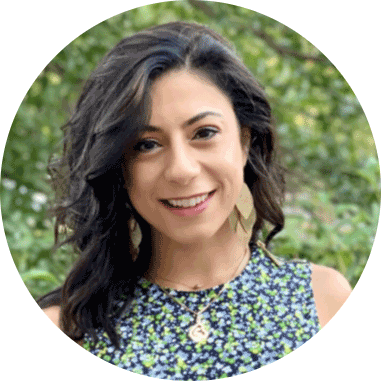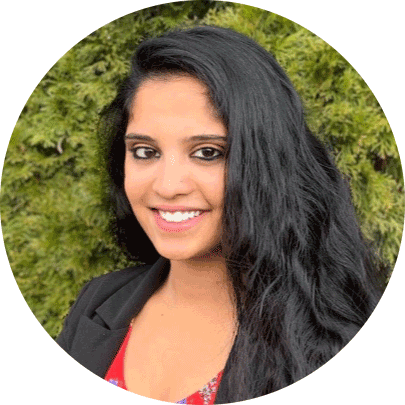
This article is part of our Freedom and Justice Week series – as Global Dashboard provides a platform for a diversity of voices to explore how we respond to the wave of protests that followed the murder of George Floyd. Read all the articles in the series here.
The fundamental lack of respect and disregard for Black lives in the United States of America is limitless and the latest string of murders have proved no different. An unarmed father (George Floyd), a sleeping girlfriend (Breonna Taylor), a former boxer [misgendered by police] (Tony McDade) gone too soon.
These murders were unsurprising to many, and yet, shook the United States, causing a ripple effect through the Western world. Protests spread from Minneapolis to London, and Washington D.C. to Paris, igniting The Western Spring. The Minnesota Department of Public Safety quickly labelled the Minneapolis protests, “urban warfare,” and many of us watched as they deployed the national guard against the communities they serve.
Though framing the protests in terms of “war,” the one-sided aggression by US law enforcement sparked parallel clashes in Paris, Zurich, Belgium, London, and across European cities. Signs of solidarity from Palestine, Syria, and South Africa have lit up social media, as the #BlackLivesMatter movement garners global support for real and substantive change made to root out systemic and systematic racism.
“While Black people make up only 13% of the US population, they are three times more likely to be killed by police and make up over a quarter of deaths by COVID-19”
Over the last few weeks, The Western Spring, concurrent to the COVID-19 pandemic, unmasked how little Black lives matter. In the US, police and COVID-19 disproportionately kill Black people, as racism manifests in higher rates of mistreatment by police as well as by hospitals, clinics, and physicians. While Black people make up only 13% of the US population, they are three times more likely to be killed by police and make up over a quarter of deaths by COVID-19.
During the height of COVID-19, the federal government put healthcare workers at risk by failing to supply hospitals with personal protective equipment (PPE). The cost of PPE for one worker is $15.33, while the cost of riot gear for one police officer is $496.01. While PPE remains a sought-after commodity, the federal and state government astonishingly found funds for riot gear overnight.
As young leaders, we recognise that in order to succeed in our work while living in a country that continues to reinforce systematic racism and white supremacy, we must continue to challenge the institutions upholding racial and ethnic inequalities.
International Response to Black Lives Matter
2020 will go down in history as the year that the US failed to show leadership in curbing COVID-19 amongst its citizens and saw the reaction both at home and abroad to police brutality against Black people. As a nation, we are under a microscope, and the world is taking notes on our ineffective leadership. The genocide and enslavement of Black people is the foundation by which our nation was built. This habitual mistreatment will continue without heavy pressure.
In an unprecedented move, 54 African nations have coalesced to urge the United Nation Human Rights Council (UNHRC) to establish an independent international commission of inquiry (COI), one of the UNHRC’s highest-level tools, to probe systemic racism and violations of international human rights abuses against people of African descent in the US. An emergency meeting on June 17th marked the fifth time in the Council’s history that it has agreed to hold an “urgent debate,” that, in addition, is in the middle of a pandemic. The agenda includes discussions around cases of police abuse, assault against protesters, and infringement of journalistic freedom.
“France and the United Kingdom have been eerily silent in speaking out against Western anti-Black institutions and police brutality”
In the last few weeks, hypocritical rhetoric by the Global North on human rights violations has become abundantly clear. For example, France and the United Kingdom – generally the loudest to denounce human rights abuses in African countries – have been eerily silent in speaking out against Western anti-Black institutions and police brutality. Emmanuel Macron went as far as to publicly state that France would not be removing the statues of historical figures associated with slavery and other past human rights abuses, in an effort to preserve painful history. White male leaders who benefit from oppressive structures have been the most complicit.
Yet, those dealing with violence day in and day out stand in solidarity. Protestors from Hong Kong to Palestine tweeted advice on how to avoid tear gas and other self-protection methods for those in Minneapolis and around the US. Over 6,000 miles away, Syrian artists have taken to the streets to voice their unity with the #BlackLivesMatter movement by creating large paintings on the remnants of destroyed homes. Despite being often dehumanised by the Western media and living through some of the most restrictive, brutal sanctions under the Caesar Act, the empathy of Syrian, Iraqi, and Palestinian citizens has been overwhelming.
Militarisation of Police
The “War on Terror,” contributed to major shifts in militarised policing agendas under the guise of national security. In the US, law enforcement has become synonymous with organised military force. Police wearing armour and carrying AR-15s, deployed through American communities they are sworn to protect and serve, have become the unfortunate reality for far too many. In addition to the visible militarisation, limitations on other civil and political rights have built fear and insecurity by police and those policed.
In response to the alarming display of gross militancy exhibited during the Ferguson protests in 2014, President Barack Obama enacted Executive Order 13688, limiting federal programmes that provided military equipment to US law enforcement agencies. On August 28, 2017, Donald J. Trump removed those limitations in a horrific action that re-granted access to “military and military-styled equipment, firearms and tactical vehicles.”
“Police militarisation against protestors, journalists, and people of colour, force us to question police intentions”
The liberal access granted to military-grade equipment encourages escalated force, inflates perceptions of crime, and endangers Black and Brown communities that are already overpoliced, deepening systemic racism and institutionalising wrongful presumptions of threat and of guilt. Police militarisation against protestors, journalists, and people of colour, particularly Black people, force us to question police intentions, as well as national and international government priorities.
The lack of care has gone so far as to even exploit COVID-19 as a means to fund the Administration’s agenda. Just recently, the $2.2 trillion CARES Act allocated $850 million to the “Coronavirus Emergency Supplemental Funding (CESF) Program,” for allegedly preparing law enforcement, correctional officers and police, as well as prisons, jails, and detention centres for COVID-19. However, the funding “may include, but is not limited to,” law enforcement equipment, hiring, training, etc. By failing to include specific limitations on where the funding can be spent, Congress has essentially handed police departments a blank cheque.
Unbeknownst to many, American policing has insidious roots in slave patrols and has put its hand in various other international oppressive regimes. The Department of Justice has reported that thousands of police departments in the US receive training on the use of force and surveillance by Israeli Defenses Forces (IDF), who enforce the illegal military occupation of Palestine.
We, in the US, cannot disengage or become desensitised to targeted violence in our communities. Rather, it is imperative that our public services detach and de-escalate from the dangerously increasing militarisation in our streets, our schools, and our public spaces. The American public, and particularly Black people deserve better.
As future leaders of the global community, we recognise the importance of our voices, and the importance of intersectional solidarity, demilitarisation, and respect for civil and human rights, particularly in advancing peace and security. Without a radical shift in which all Black lives matter, police militarisation and international complacency will continue to plague Black people in the US and globally. The Western Spring will rage on.





